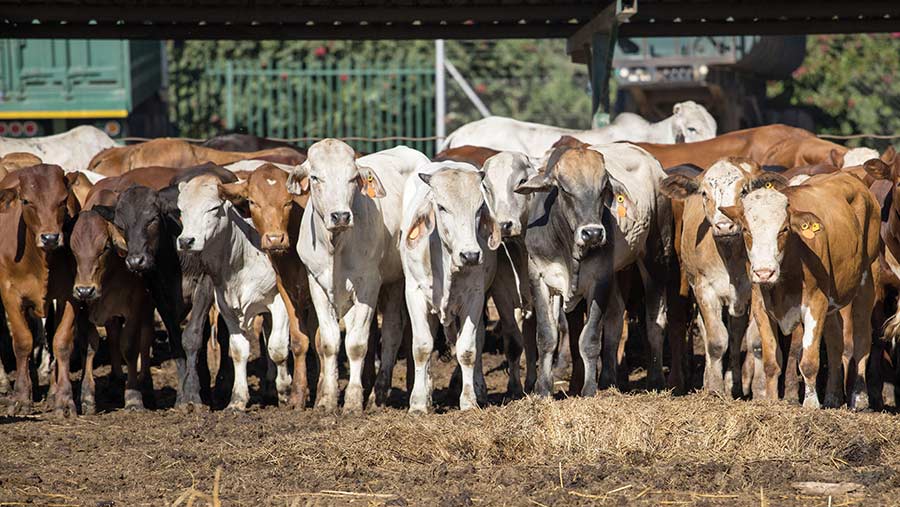Australia trade deal: what the TAC report has to say
 © Clinton Austin/Alamy Stock Photo
© Clinton Austin/Alamy Stock Photo The Trade and Agriculture Commission (TAC) has published a new report that assesses the impact of the UK-Australia free trade agreement (FTA) on UK agriculture.
This follows a request last December sent by trade secretary Anne-Marie Trevelyan to TAC chairman Professor Lorand Bartels for a “chapter-by-chapter” assessment of the UK-Australia FTA and its impact on trade in agricultural products.
The minister sought advice on whether the measures applicable to trade in agricultural products were consistent with the maintenance of UK levels of statutory protection in three areas: animal or plant life or health; animal welfare; and environmental protections.
See also: Australia and NZ play down free-trade deal threat to UK farmers
The UK government has estimated that the Australia deal could unlock £10.4bn of additional trade a year, equivalent to 0.08% of GDP over 15 years.
The deal removes tariffs on almost all goods, although the removal of tariffs on some agricultural products, including beef and sheepmeat, will be phased in over 15 years.
The TAC report confirms the deal could result in the UK having to accept imports of agrifoods produced with pesticides banned in the UK, GM crops and wool from mutilated sheep.
It is also likely to increase imports of beef from feedlot systems and produced to lower welfare standards. The committee found that agri-foods from deforested land could be imported in larger quantities as well.
Here are the most important findings of the latest report by category:
Hormone-fed beef
It is currently illegal for beef from cattle treated with hormonal growth promotants (HGPs) to be imported into the UK.
The report says the free trade deal does not change the legal position on this WTO prohibition. If the UK did import hormone beef, it would be highly likely that labelling would need to distinguish between HGP and non-HGP products for consumers.
Feedlots
It is “inevitable” that more feedlot beef will enter the UK under the trade deal.
Under both World Trade Organization (WTO) law and the FTA, it would be difficult to see how the UK can restrict imports of feedlot beef on moral grounds “if it is produced under conditions that are more generous than in the UK itself”.
Hot branding
Hot iron branding of livestock, including cattle, horses and other animals is legal in Australia. But there is virtually no risk that beef from hot branded cattle will be imported into the UK, the TAC says.
This is because the European Union Cattle Accreditation Scheme (EUCAS), or UK equivalent, requires the electronic identification of cattle for export to the EU, rendering hot branding unnecessary.
Slaughterhouse CCTV
There is no national requirement for CCTV in Australian abattoirs. Meat from abattoirs not using CCTV could therefore be imported in increased quantities under the FTA.
It is illegal in Australia, however, to export meat from non-stunned animals. In the UK, stunning is required except for meat produced according to religious rites.
Mulesing
The practice of mulesing sees Australian sheep farmers remove a strip of wool-bearing skin from around the buttocks of a live animal to prevent flystrike, often without any pain relief.
The likelihood of Australian mutton from mulesed sheep being imported into the UK is “negligible”. But there is a “much higher chance” of wool imports from mulesed sheep.
Livestock transport times
There is a “low risk” that meat produced from cattle and sheep that has travelled much longer times than allowable in the UK will be imported in increased quantities under the FTA.
If this does arise, the UK could seek to justify an import ban “to protect its public morals”.
Pesticides
The FTA is likely to lead to increased imports of products from Australia produced at lower costs using pesticides that would be banned in the UK, such as the weedkiller paraquat. Australia is under obligations at Commonwealth level to maintain and implement certain environmental laws around pesticide use.
Farming organisations react to TAC report
The UK government’s free trade deal with Australia will open the market to cheaper goods produced to lower environmental and animal welfare standards, which risks undercutting British farmers, warns the NFU.
The deal will also pave the way for others to follow and even the government’s own FTA assessment anticipates a negative economic impact on UK farmers, said NFU president Minette Batters.
Therefore, it is vital that government provides a clear programme of policies and investment to help UK farming get “match-ready” for this new, tougher trading environment.
“We also need to see government working with farmers to develop a set of core environmental and animal welfare standards that it can seek to safeguard through forthcoming FTAs, as well as in its general import policy under its current WTO commitments.”
Vicki Hird, head of sustainable farming at Sustain, warned that the lowering of standards in the UK-Australia FTA sets a “dangerous precedent” ahead of future trade negotiations with larger agri-producing nations, such as the US, Canada and Brazil.
“We urge the UK government to introduce urgently a trade strategy as well as a set of core standards that domestic produce and imports alike must meet,” she added.
